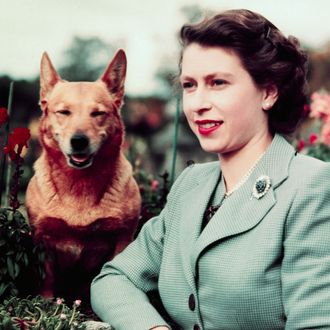
At age 90, Queen Elizabeth II has the distinction of being Britain’s longest-living monarch of all time. (She also recently achieved a bit of resurgence stateside with the popularity of Netflix’s The Crown.) However, as outlined in The Guardian in a fascinating new feature, due to her advanced age, the palace — and many facets of the British communication apparatus as a whole — have already conjured up air-tight plans for how they will cover the event of her death. Adhering to established protocol, the queen’s long-time private secretary will contact the prime minister with the news; upon the completion of that exchange, civil servants will use secure lines to declare “London Bridge is down.” The news will then go out from the Foreign Office’s Global Response Centre to “15 governments outside the U.K. where the Queen is also the head of state, and the 36 other nations of the Commonwealth for whom she has served as a symbolic figurehead.” Within minutes, every news station across the world will know what happened.
But back home in Britain, broadcasters have been establishing (and honing) their death-coverage plans for many, many years. Radio programs, for instance, already have preselected music for when the news breaks.
For people stuck in traffic, or with Heart FM on in the background, there will only be the subtlest of indications, at first, that something has happened. Britain’s commercial radio stations have a network of blue “obit lights”, which is tested once a week and supposed to light up in the event of a national catastrophe. When the news breaks, these lights will flash, alerting DJs to switch to the news in the next few minutes and to play inoffensive music in the meantime. Every station, down to hospital radio, has prepared music lists made up of “Mood 2” (sad) or “Mood 1” (saddest) songs to reach for in times of sudden mourning.
On television networks, precise words to announce the queen’s death have also already been chosen.
But there will be no extemporising with the Queen. The newsreaders will wear black suits and black ties. Category one was made for her. Programmes will stop. Networks will merge. BBC 1, 2 and 4 will be interrupted and revert silently to their respective idents — an exercise class in a village hall, a swan waiting on a pond — before coming together for the news. Listeners to Radio 4 and Radio 5 live will hear a specific formulation of words, “This is the BBC from London,” which, intentionally or not, will summon a spirit of national emergency.
Networks also frequently participate in rehearsals for when the news eventually breaks. The Guardian reports that for 30 years, BBC news teams have been coming in to work on occasional Sunday mornings to perform mock story lines.
The main reason for rehearsals is to have words that are roughly approximate to the moment. “It is with the greatest sorrow that we make the following announcement,” said John Snagge, the BBC presenter who informed the world of the death of George VI. (The news was repeated seven times, every 15 minutes, and then the BBC went silent for five hours). According to one former head of BBC news, a very similar set of words will be used for the Queen. The rehearsals for her are different to the other members of the family, he explained. People become upset, and contemplate the unthinkable oddness of her absence. “She is the only monarch that most of us have ever known,” he said. The royal standard will appear on the screen. The national anthem will play.
After the announcements, the funeral, and the lavish procession, Charles will be crowned king.





